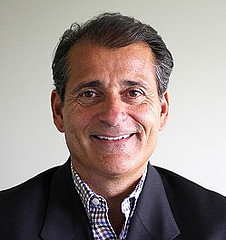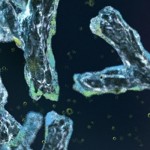Color Compound in Some Fruits and Vegetables Could Lower Lung Cancer Risk in Smokers
A pigment in oranges, sweet red peppers, and other fruits and vegetables may lower the risk of lung cancer in smokers, according to a new study.
Nicotine is the primary addictive component of tobacco and some e-cigarette liquids. Medical scientists believe nicotine contributes to cancer promotion and progression by activating nicotinic acetylcholine receptors. The study results suggest that the color compound, known as beta- cryptoxanthin (BCX), reduces the number of these receptors. This means eating fruits and vegetables high in BCX might reduce the risk of lung cancer resulting from smoking.
cryptoxanthin (BCX), reduces the number of these receptors. This means eating fruits and vegetables high in BCX might reduce the risk of lung cancer resulting from smoking.
Doctors diagnose about 222,500 new cases of lung cancer in the United States each year, according to the American Cancer Society, and more than 155,000 Americans will die from the disease each year. The American Lung Association notes that male smokers are 23 times more likely to develop lung cancer than are men who do not smoke, and female smokers are at 13 times greater risk of developing lung cancer than are non-smoking women.
Causing approximately 7,330 deaths among nonsmokers each year, exposure to secondhand smoke is also a risk factor for lung cancer.
Nicotine and the Growth of Lung Tumors
Tobacco smoke contains more than 7,000 compounds and many of these substances, upon inhalation, act as carcinogens to damage the cells lining the lungs. While nicotine does not cause lung cancer directly, the addictive compound can promote lung tumor growth.
Study co-author Xiang-Dong Wang, of the Jean Mayer United States Department of Agriculture Human Nutrition Research Center on Aging at Tufts University in Boston, MA, and colleagues provide more insight into how nicotine promotes lung cancer.
 When inhaled, nicotine binds to nicotinic acetylcholine receptor α7 (α7-nAChR), which is a nicotine receptor lying on the surface of the lungs. The binding action prompts a signaling cascade that results in the proliferation of cells and the formation of new blood vessels. Cell proliferation and blood vessel formation are processes involved in the growth of cancer.
When inhaled, nicotine binds to nicotinic acetylcholine receptor α7 (α7-nAChR), which is a nicotine receptor lying on the surface of the lungs. The binding action prompts a signaling cascade that results in the proliferation of cells and the formation of new blood vessels. Cell proliferation and blood vessel formation are processes involved in the growth of cancer.
Nicotine also increases the production of nicotinic receptors, actually creating more α7-nAChR on which to bind. Providing more nicotinic receptors strengthens the signaling cascade, further encouraging the growth of lung cancer cells. In other words, the more a person smokes or suffers secondhand exposure to smoke, the more receptors he or she develops, the stronger the process encouraging the growth cancer.
Wang and colleagues think that consuming BCX could effectively reduce the number of α7-nAChR receptors on the lungs, thereby decreasing the potential growth of lung cancer cells.
BCX reduced lung tumor growth in laboratory mice
BCX is a carotenoid that gives yellow, orange and red fruits and vegetables their color. Oranges, tangerines, butternut squash, and sweet red peppers contain beta-cryptoxanthin.
In an earlier study, Wang and a team of researchers observed an association between eating foods rich in BCX and a lower risk of lung cancer in humans. In this study, the team focused on pinpointing the mechanisms underlying the link between a BCX-rich diet and lowered risk of lung cancer in smokers.
The scientists administered a daily injection of a carcinogen derived from nicotine to two groups of mice. The test group of mice also received a daily dose of BCX before and after the nicotine injection. The researchers found that, compared with the mice that did not receive the carotenoid, the test group experienced a 52-63 percent reduction in lung tumor growth.
The researchers determined 870 micrograms, which is the equivalent to one sweet pepper or two tangerines per day for humans, as the most effective daily dose of BCX for reducing lung tumor growth.
The team then tests BCX on human lung cancer cells, both with and without α7-nAChR. They discovered that lung cancer cells with α7-nAChR receptors were less likely to spread after exposure to the color compound, as compared with lung cancer cells without those receptors.
Further research could provide a better understanding of how consuming foods rich in beta-cryptoxanthin might affect the development of lung cancer in humans.
Source
http://cancerpreventionresearch.aacrjournals.org/content/9/11/875
http://www.cancer.org/cancer/non-small-cell-lung-cancer/about/key-statistics.html
Frank Magliochetti is Managing Partner for Parcae Capital
-
North Andover, Massachusetts
This column of posts is directed at the Healthcare Industry. Frank plans to release new sites dedicated to the industry. Frank currently assists companies who are building, restructuring, transforming and resurrecting there business’s. An example of his client base are, Xenetic Biosciences , IPC Medical Corp, Just Fellowship Corp, Environmental Services Inc., Parsons Post House LLC, ClickStream Corporation as well as having a business talk radio show; The Business Architect on the URBN network.










